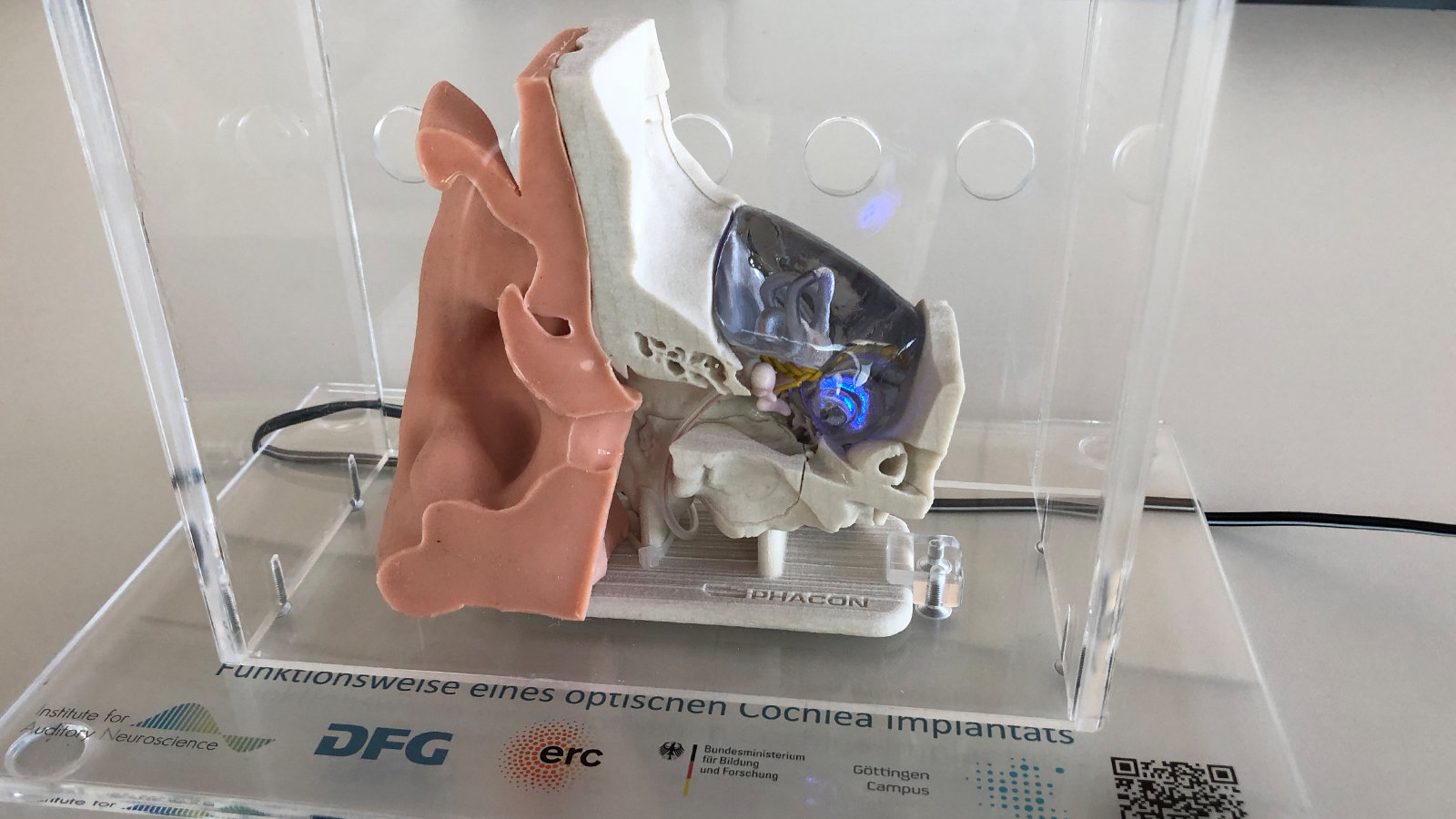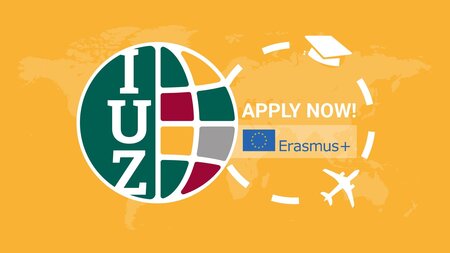Using Light to Control Nerve Cells
Federal Ministry of Research provides funding for project for better medical devices at the Photonik Inkubator in Göttingen – Chemnitz University is a cooperation partner
-

Optical cochlear implants (CI) for deaf people. These devices are a concrete application of optogenetics in human medicine. The CI – seen here as a string of blue lights – is inserted into the cochlea, inside the inner ear. Photo: OptoGenTech -

Prof. Dr. Ulrich Theodor Schwarz and his colleague in Chemnitz Prof. Dr. Karla Hiller are developing sensors and miniaturized light arrays. Photo: private
The German Federal Ministry of Education and Research (BMBF) has approved the “OptoGenTech” project at the Photonik Inkubator in Göttingen, whose primary focus is to develop implantable sensors for the optical stimulation of nerve cells. Chemnitz University of Technology and the University Medical Center Göttingen will receive funding for their development work. Chemnitz University is responsible for developing sensors and miniaturized light arrays. The Professorships of Microtechnology (Prof. Dr. Karla Hiller) and Experimental Sensor Science (Prof. Dr. Ulrich Schwarz) are involved in this project. Along with basic research, the goal is to found a new, independent company. For this, the BMBF has contributed approximately 1.4 million euros over two years from its “Optical Technologies – Made in Germany” line of funding.
Light Can Control Cell Activity
These implantable sensors are much needed “tools” for bio-medical research in the field of optogenetics. This highly active field of research is focused on the use of light to control cell activity, which can be activated or inhibited through the insertion of genetic “switches”. It is now not only possible to switch nerve cells on or off using light, but also to optically activate many other cell functions. One significant advantage of this over electrical stimulation, such as is used in pacemakers in the heart or brain or in classical cochlear implants, is the ability of light to specifically address nerve cells according to type or spatial location. Therefore, optogenetic control enables much more accurate control of cell activity. These advancements have not only led to new methods in neuroscience research, but also to new approaches for medical devices like cochlear implants – with potential that has yet to be achieved.
In OptoGenTech, miniaturized light arrays are being developed. These implantable sensors will enable optogenetic technologies to be used on living organisms. The sensors will also be introduced onto the market initially for applications in research as integral components in electronic systems for stimulation and signal processing, a software package and infrastructure for behavioral experiments. The stimulation system was developed as part of the “OptoHear” project, funded by the European Research Council.
In the project, two types of sensor will be used: “active sensors” with miniaturized micro-LEDs on a flexible backing and “passive sensors”, by which light from laser diodes will be transmitted into tissue via optical polymer waveguides. Prototypes for local stimulation by micro-LED arrays have already been developed in other BMBF-funded projects, such as “Lichthören” and “optical CI”. This should help to accelerate their initial entrance onto the research market.
Waveguide sensors have the additional advantage that the semiconductor light sources with electronics for activation are physically separated from the locus of stimulation. As a result, developers have more freedom regarding which materials come in direct contact with the tissue being stimulated and can create a better hermetic seal around the active components. This is a necessary prerequisite for medical implants, which – as is the case with optical cochlear implants – must function for many years in the "electronics-unfriendly" environment of the human body.
Background: Photonik Inkubator Göttingen
At the Photonik Inkubator, research and development projects are brought to market-readiness. More information: www.photonik-inkubator.de (in German)
Contacts:
Chemnitz University of Technology
Prof. Dr. Ulrich Theodor Schwarz, Tel.: (+49) 371 / 531-30001, E-mail: ulrich.schwarz@physik.tu-chemnitz.de
Photonik Inkubator GmbH
Julia Liebing, Tel.: (+49) 551 30724-135, E-mail: liebing@photonik-inkubator.de
University Medical Center Göttingen
Prof. Dr. Tobias Moser, Tel.: (+49) 551 39-8968/-22803, E-mail: tmoser@gwdg.de
(Translation: Sarah Wilson)
Matthias Fejes
06.03.2018




